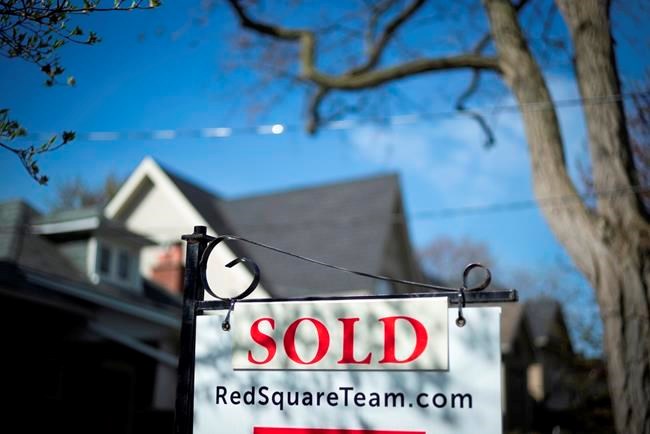TORONTO — An unprecedented surge in demand for low-rise housing pushed Toronto area home sales and prices to record highs in August, as the market continued to play catch-up from the COVID-19 lockdown this spring.
Toronto Regional Real Estate Board reported 10,775 home sales through its MLS system for August, up more than 40 per cent from 7,682 in the same month a year ago. Sales of detached homes rose 50.6 per cent and semi-detached houses climbed 66.8 per cent, while condo sales growth was slower, at 10.9 per cent.
The average price of a home sold in the region was $951,404, up more than 20 per cent from $792,134 a year ago.
"Between March and June … sellers took their homes off the market. A lot of people were afraid to have strangers walking through their homes," says Michael Grant, sales representative at Royal LePage Infinity.
"Around mid-July … all of a sudden it seemed that everyone had the same feeling: 'Let's jump into the market'."
In spite of the record-setting sales in July and August, TRREB said year-to-date sales have not caught up to where they were this time last year, given how significant the drop in sales was during the spring. Only sales of detached homes have surpassed 2019 levels so far this year.
"Inside the city people are selling single-family homes, the low-rise models, the detached, the semi-detached, and they are moving out of the city," says Charlene Williams, real estate broker at Real Estate Homeward Brokerage.
In Toronto, the board's August numbers indicated that at least some buyers are staying in the heart of the city — but are ditching high rises. The data showed stronger sales growth for detached and semi-detached homes in the City of Toronto compared with the rest of the GTA, although some areas outside of the city centre saw major price hikes, including a 18 per cent price rise for homes in Orangeville, northwest of the city.
But condos are increasingly hitting the market as people move toward low-rise communities, "with growth in condominium apartment listings well-outstripping condo sales growth," according to Jason Mercer, TRREB's chief market analyst.
"The condo market has fallen off for me … interest in the downtown core area of the city, that's dramatically fallen, and I've seen a lot more interest in the 905 region," says Grant.
"The demand for multigenerational homes has increased. People are looking for a home where they have separate entrances, basement apartments. A lot of people want to rent out a portion of their homes … That was always the trend, but it has increased a lot in the last little while as people are more cognizant of the cost of living."
Board president Lisa Patel attributed part of the market's overall sales growth in August to "improving economic conditions and "very low borrowing costs," as mortgage rates remained low. Statistics Canada previously reported that almost 2.2 million Canadians were unemployed in July, nearly twice as many as in February, but unemployment levels were down from record highs.
"It's mostly investors that are putting the condos on the market, because they are not able to get renters. Tenants aren't able to pay the rent … they are the ones that have lost their jobs," says Williams.
Going into fall, market watchers are eyeing how mortgage deferral rates and the end of other government income supports will impact the real estate market, according to a separate report on interest rates released by Finder.com on Thursday.
Sri Thanabalasingam, senior economist at TD Bank, said a Finder.com's report said that "a partial labour market recovery and ending mortgage deferrals could increase housing supply later this year, potentially putting downward pressure on prices."
"People want to see what's going to happen, if the deferrals will have an impact on housing prices," says Grant. "They are interested in holding off but they want that pre-approval, they want to lock-in that (mortgage) rate … They are able to afford more home with lower interest rates."
Not everyone has a glum outlook: A survey of Remax brokers suggests that the average residential sale price in Canada could increase by 4.6 per cent through the rest of 2020, owing to Canadians looking to flee urban centres in search of more space.
"Predominantly in government, banking, insurance … the clients I've worked with just continued to work during the pandemic. There wasn't any downtime or layoffs, they have just shifted to working from home," says Grant.
"It's kind of the haves versus the have-nots. There is not much middle ground in Toronto."
This report by The Canadian Press was first published Sept. 3, 2020.
Anita Balakrishnan, The Canadian Press



